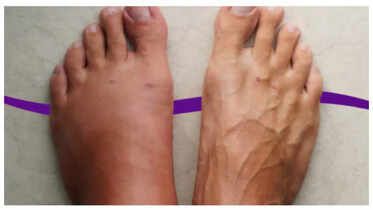ARTICLES
Biology Myths About Virginity Every Woman Should Know
Biology Myths About Virginity Every Woman Should Know

Virginity is one of the most talked-about subjects when it comes to women’s bodies, yet it remains surrounded by half-truths, cultural pressure, and outright misinformation. Many of these misconceptions are based on flawed ideas about biology—how the body works and what can or cannot determine virginity. These myths have been passed down through generations, shaping how women see themselves and how society treats them.
The problem is, most of these “facts” are not supported by science. Understanding what is real and what is not can help women free themselves from unnecessary fear, shame, and judgment. Let’s look at some of the most common biology myths about virginity—and what science actually says.
Myth 1: The Hymen Is Proof of Virginity
One of the most persistent myths is that the hymen is an unbroken seal that only “breaks” during first sexual intercourse. This belief has led to virginity testing, public shaming, and even violence in some cultures.
Biologically, the hymen is a thin, elastic membrane with a natural opening from birth. It varies in size, shape, and thickness for every woman. Some women are born with very little hymenal tissue, while others have more. It can also stretch or tear due to non-sexual activities such as sports, tampon use, or medical procedures.
In short, the hymen cannot confirm whether someone has had sex. Its appearance is simply too variable and influenced by too many non-sexual factors.
Myth 2: Bleeding Is Always a Sign of Virginity Loss
Popular culture has reinforced the idea that a woman will bleed the first time she has vaginal sex. This is not biologically true.
Bleeding during first intercourse can happen, but it’s not guaranteed. When it does occur, it can be due to lack of lubrication, tension in the vaginal muscles, or minor stretching of tissues—not necessarily the hymen.
In fact, many women never bleed at all during first-time sex. Others may bleed slightly or more heavily, and this can happen even if they’ve had sex before, depending on the circumstances.
Myth 3: Virginity Can Be Physically Tested
There is no medical test that can confirm virginity. Doctors cannot tell if a woman has had sexual intercourse just by examining her genitals.
Virginity is a social and personal concept, not a biological state. It is defined by personal experiences, not by any specific physical sign. This is why virginity testing, still practiced in some countries, has been condemned by the World Health Organization and human rights groups.
Myth 4: The Vagina Changes Shape Permanently After Sex
Some people believe that the vagina becomes permanently “loose” after sexual intercourse, making it easy to tell if a woman is sexually active. This is false.
The vagina is made of elastic tissue designed to stretch and return to its original shape. It can expand to accommodate activities like childbirth, then return to a smaller size afterward. Sexual activity does not cause permanent loosening. Any short-term changes after sex are temporary and influenced by arousal, not by permanent alteration of the anatomy.
Myth 5: Only Vaginal Sex Can “Take Away” Virginity
Virginity means different things to different people, and there is no universal biological definition. Some define virginity loss strictly as vaginal intercourse, while others include oral or anal sex, or any sexual contact.
Biologically, none of these activities can be measured by a physical sign in the body. The concept of “losing virginity” is entirely based on personal or cultural beliefs, not medical facts.
Why These Myths Are Harmful
Believing false biology myths about virginity can cause:
- Shame and guilt: Women may feel “damaged” for natural changes in their body.
- Fear and restriction: Girls may avoid sports, medical checkups, or tampon use out of fear of “losing” virginity.
- Unfair judgment: Women may face accusations or violence for not meeting outdated physical expectations.
These myths also place unfair responsibility on women to “prove” purity while men rarely face the same scrutiny.
What Science Actually Says About Virginity
From a scientific perspective, virginity is not a biological fact—it’s a cultural idea. The body does not keep a record of sexual history, and there is no tissue, fluid, or test that can reveal it.
The hymen, vagina, and other reproductive structures function normally regardless of sexual activity. They change over time due to hormonal shifts, childbirth, and age—not simply from having sex.
Changing the Conversation
Ending biology myths about virginity starts with education. Schools, parents, and health professionals need to share accurate sexual health information instead of passing on old, unscientific beliefs. Women should be encouraged to see their bodies without shame or fear. Virginity should be treated as a personal choice, not a medical condition.
Biology myths about virginity have controlled women’s lives for centuries, but science has shown that they are false. The hymen is not proof of sexual history. Bleeding is not a requirement for virginity loss. The vagina does not permanently change after sex. Virginity cannot be measured by the body—it exists only as a personal and social concept. Every woman deserves the truth so she can live without unnecessary fear or judgment.
ALSO READ: Virginity Myths That Harm Relationships
Discover more from 9jaPolyTv
Subscribe to get the latest posts sent to your email.

 ARTICLES53 minutes ago
ARTICLES53 minutes agoTop 10 5G Smartphones in Nigeria Under ₦200,000 (2025 Edition)

 EDUCATION1 hour ago
EDUCATION1 hour agoOPay boosts education with ₦1.2bn scholarship for OOU students

 Admission2 hours ago
Admission2 hours agoFederal Polytechnic Ado-Ekiti Releases 2025/2026 ND Cut-Off Marks — Check Your Course Here

 EDUCATION1 hour ago
EDUCATION1 hour agoNELFUND says students’ loan repayable, receives 760,000 applications

 EDUCATION2 hours ago
EDUCATION2 hours agoNELFUND disburses ₦86.3bn student loans to 450,000 beneficiaries

 ARTICLES1 hour ago
ARTICLES1 hour ago6 High-Fiber Foods That Can Rival (or Beat) Beans

 EDUCATION2 hours ago
EDUCATION2 hours agoSwiss Government Excellence Scholarships 2026–27 — Apply Now

 ARTICLES1 hour ago
ARTICLES1 hour ago5 Cheapest itel Phones You Can Buy Right Now






























